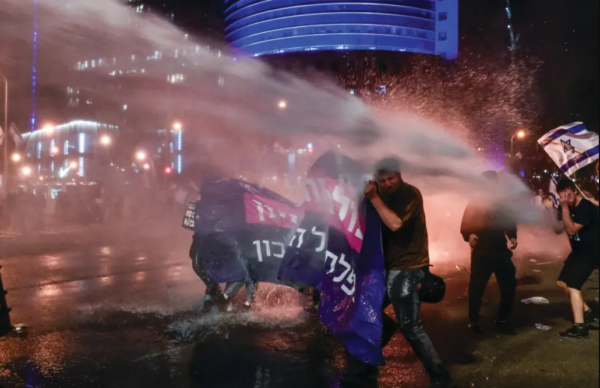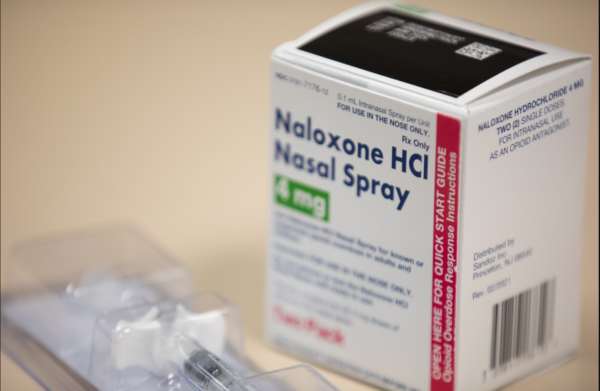Israel is a noisy nation. I’m not just referring to the people, who are boisterous in a charming and familiar way; I’m referring to everything, and that’s not always a good thing.
Politically, we are at a significant juncture at the moment. Due to the fact that judicial reforms are a constant source of tension in the public sphere, there is a constant perception of conflict with the individual standing next to you. Protests have spread across the nation for both opponents and proponents of judicial reform.
Israel’s nature doesn’t help prevent stress from many sources. The sirens stop.
This is occurring at a time when our security tensions have also increased, as missiles have been launched from the Gaza Strip, Lebanon, and Syria, and numerous terrorist attacks have left citizens injured and even dead.
And at each of these occasions, there is commotion. Not just any commotion – not just the voices – but sirens. There are police sirens at every demonstration, ambulance sirens at every terrorist attack, and missile sirens at every resumption of attacks against Israel.
This status quo is present as we approach Holocaust Remembrance Day and Remembrance Day, the latter of which is dedicated to remembering those who lost their lives in terrorist attacks and military operations, similar to those in recent news headlines. With memorial sirens blaring in the background, the entire nation falls silent and bows its head in remembrance.
Obviously, this is not a tranquil place to reside. Israelis have a tendency to flinch at the sound of deafening sounds, believing they must rush to a bomb shelter or that a terrorist attack has just taken place nearby.

Political terror
The political realm is capable of causing an increasing amount of distress. In Israel, for instance, the Community Stress Prevention Center (CSPC) reported a 40% increase in applications to their treatment centers for distress in the past year alone. This unprecedented acute and trending increase in distress in a very short period of time has prompted the center to open a hotline for those experiencing anxiety and the like as a result of the country’s political tensions.
There were scores of calls from both sides of the political spectrum to the hotline, at roughly the same frequency. According to the CSPC, people on all parties feel distressed, threatened, or even assaulted because of their political affiliation or because someone at a protest mistook them for the “other side.” However, the increase in inquiries is consistent across all industries.
“The rise is an ongoing phenomenon that has reached a new peak,” CSPC director Yiftach Benbenisti told the Magazine. “People who never called us for help, even during the long COVID-19 lockdowns, are now calling with fears, anxiety, depression, and most of all, helplessness and concerns about when it will all end.”
In many ways, he said, these apprehensions resemble those of domestic violence victims who believe that “the conflict is internal, not external.” Thus, the turmoil is an emotional one.
The true astonishment, he explained, is the number of newcomers to the center who previously viewed themselves as resilient and able to manage their anxiety, but who are now confronted with the reality of the country’s political climate and find themselves helpless.
According to Benbenisti, distress can be exacerbated by excessive use of social media, a general tendency toward negative thinking, and an inability to fall slumber.
This massive increase has made it difficult for organizations such as the ICSPC to meet the demand for support and assistance.
Security Anxiety
In recent years, numerous Israeli and international studies have demonstrated that living with constant exposure to terror attacks is detrimental to the body and psyche. According to a 2014 study conducted by the Hebrew University of Jerusalem, consistent exposure to the prospect of terrorism can result in negative health consequences and increase the risk of death.
Increased tensions in the public sphere can also initiate or precipitate post-traumatic stress disorder (PTSD). During what was known as the “knife intifada,” an enormous surge of terror attacks in 2015, approximately 8,000 Israelis developed PTSD as a result of daily events.
Itzik Chen, a former IDF paratrooper in Lebanon and Nablus, committed suicide just two years ago after being recognized as a disabled veteran but struggling to receive additional recognition for mental disorders stemming from his service.
The Defense Ministry denied that Chen’s suicide was related to the post-traumatic stress disorder he developed while serving in the IDF, but the IDF Disabled Veterans Association stated at the time, “This is exactly the outcry that we have been raising all along. There are disabled veterans of the IDF who have been waiting for recognition for years, but who have fallen through the gaps and are not receiving appropriate care.
Now, as Israel enters a new phase of security tensions, everybody is on alert. There is concern that surges of mental health crises, along with rocket and terror attacks, will return. Yet, according to professionals, these emotional crises have hardly been addressed.

Tips for Stress
Benbenisti provided a number of recommendations for coping with the anxiety and unease created by the current tensions.
Mindfulness
“Be mindful of yourself and your stress,” he instructed. This assists with “learning to manage” strain. Awareness is crucial.
Recharge
According to Benbenisti, it is essential to “find ways to recharge, unwind, and concentrate on activities that make you feel good.”
Protest sensibly
He explained that those who wish to protest but are concerned about potential distress triggers should stay with familiar individuals. “Go to the side if you feel distressed,” he added.
Learn respiratory procedures
Breathing techniques are methods for controlling the pulse rate and calming the breath, thereby reducing feelings of tension and anxiety.
This is illustrated by the 4-7-8 method: Close your eyes and inhale a four-second, deep breath through your nostrils. Hold your breath for seven seconds, then exhale steadily for eight seconds through your mouth.
Monitor the press
As previously stated, spending too much time on social media can be quite detrimental. Monitor the amount of time you spend online and viewing television. These factors can exacerbate tension.
Sleep, drink, consume, repeat
Benbenisti advised, “Take care of your sleeping hours, drink liquids – not alcohol – and eat.”
We’ll be fine.
Unfortunately, the essence of Israel does not help prevent tension from being caused by a variety of circumstances. Nevertheless, this is a marvelous country with abundant resources.
Remember that eventually the sirens will cease to sound.



